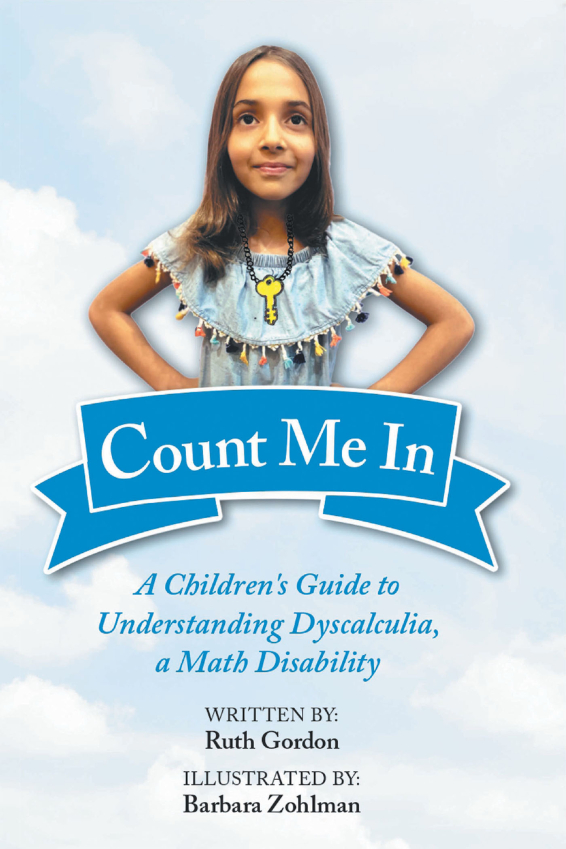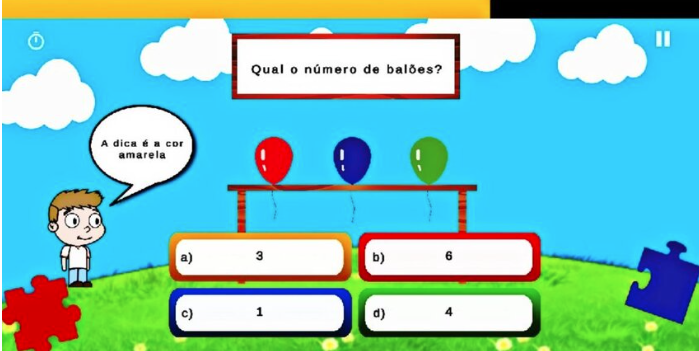REVIEWED BY NUMBERDYSLEXIA’S EXPERT PANEL ON APRIL 20, 2023
Learning disabilities are like a hallway in a large mansion. They are narrow and restrictive, but they do open into spacious rooms filled with opportunities for growth and success.” – Rick Lavoie
Learning disabilities are often thought of as a condition that only affects children. However, this is far from the truth. Many adults live with learning disabilities that have gone undiagnosed and untreated for years. These disabilities can have a significant impact on an individual’s daily life, including their ability to learn new skills, work effectively, and communicate with others.
In this article, we’ll explore some of the common signs of learning difficulties and the next step on how to manage them effectively with treatment and support. So, whether you’re an adult living with a learning disability or simply interested in learning more, keep reading to discover more!
Common signs of learning disabilities: How to identify them early
Learning disabilities are often thought of as a childhood condition, but many adults continue to experience learning difficulties throughout their lives. The American Psychological Association (APA) defines a learning disability as a neurological disorder that affects the brain’s ability to receive, process, store, and respond to information. Learning disabilities can affect people of all ages, including adults. Let’s understand these signs better-
1. Difficulty reading, writing, or spelling:
Adults with learning disabilities may experience challenges in fundamental literacy skills, such as comprehending written text, expressing themselves in writing, and spelling accurately. They may find it difficult to understand intricate texts, produce grammatically correct sentences, and spell words correctly. For instance, an adult with a learning disability might have difficulties reading and comprehending an instruction manual, composing an email, or completing a form.
2. Problems with math:

Similarly, people may struggle with basic mathematical concepts, such as arithmetic, algebra, and geometry with learning difficulties. They have a hard time understanding math concepts, struggle with basic calculations, or have trouble remembering math facts.
3. Difficulty with organization and time management:
Another often overlooked indication of adults with learning difficulties is their struggle to stay organized and manage their time efficiently. Such individuals may encounter challenges in prioritizing tasks, remembering crucial appointments or deadlines, or planning and executing tasks within a reasonable time frame.
4. Poor memory:

Another commonly overlooked sign of learning disabilities in adults is difficulty with memory. Individuals with learning disabilities may encounter challenges in remembering important information, such as dates, names, and facts. They may find it difficult to recall information they have learned previously or struggle to retain newly acquired information.
5. Difficulty with language:
Some adults with learning disabilities may also face difficulties in language skills, such as listening, speaking, and understanding spoken language. They may experience problems following conversations, comprehending sarcasm or humor, or expressing themselves effectively. These individuals may find it challenging to articulate their thoughts, ideas, and feelings in a clear and concise manner, which can impact their ability to communicate when they socialize with others.
6. Problems with attention and focus:
An additional example of the challenges that adults with learning disabilities face is problems with attention and focus. These individuals may find it challenging to concentrate and maintain their focus on tasks that require prolonged periods of attention.
They may become easily distracted, lose track of time, and struggle to stay on task. For example, an adult with a learning disability may find it difficult to complete a work project that requires prolonged concentration, or they may struggle to stay focused while reading a lengthy article or book.
7. Difficulty with social skills:

Another commonly observed issue in adults with learning disabilities is difficulty with social interactions. These individuals may encounter challenges in interpreting social cues, comprehending nonverbal communication, and maintaining relationships. They may have difficulties recognizing and understanding the perspectives of others or have trouble initiating and sustaining conversations. They may also have trouble expressing their own thoughts and emotions effectively.
Identifying a learning disability can be a complex and multi-step process. It is essential to rule out other potential underlying issues such as vision, hearing, or developmental problems that could overshadow the learning disability with help of professionals. After these initial assessments, psycho-educational evaluations are conducted to identify a learning disability accurately.
This assessment involves academic achievement testing combined with an intellectual capability measure. The results of these assessments provide a comprehensive picture of the individual’s cognitive abilities, academic skills, and overall functioning. With this, an accurate diagnosis of a learning disability can be made, and the necessary interventions can be implemented. You can also use resources such as the dyslexia checklist to determine early signs of it.
Common types of learning disabilities in adults include dyslexia, dysgraphia, dyscalculia, auditory processing disorder, visual processing disorder, ADHD, and non-verbal learning disabilities. Each of these types can affect various aspects of an individual’s life, and identifying them using these signs can help tailor the appropriate interventions to meet their specific needs.
Emotional and behavioral signs of learning disabilities: What to look out for
In addition to the cognitive and academic challenges that individuals with learning disabilities face, they may also experience emotional and behavioral difficulties. These emotional and behavioral difficulties can impact an individual’s mental health, relationships, and overall quality of life. Here are some common emotional and behavioral signs of learning disabilities in adults:
- Low self-esteem and feelings of inadequacy
- Frustration or anger related to learning challenges
- Anxiety or depression related to academic or work performance
- Difficulty with social skills, including communication and interpersonal relationships
- Impulsivity and difficulty with self-regulation
- Difficulty adapting to change or new situations
- Avoidance or reluctance to participate in activities that require learning or processing new information
Factors that may increase the risk of learning disabilities: Understanding the causes
While the exact causes of learning disabilities are not yet fully understood, several factors can increase an adult’s risk of developing them. Here are some of the most common risk factors:

- Genetic and environmental factors: Studies[1] suggest that genetics and environmental factors play a significant role in the development of learning difficulties. Exposure to toxins and infections during pregnancy and early childhood, as well as genetic predispositions, can increase the risk of learning disabilities.
- Medical conditions: Certain medical conditions such as traumatic brain injury, stroke, and chronic illnesses can cause learning difficulties and increase the risk of learning disabilities in adults.
- Lack of early intervention: Without early intervention and appropriate support, learning difficulties can persist into adulthood and lead to significant challenges.
- Poverty and social disadvantage: Adults from low-income and disadvantaged backgrounds may be at higher risk for learning disabilities due to factors such as inadequate healthcare, nutrition, and education resources.
- English as a second language: Adults who speak English as a second language may face additional challenges in learning and processing information, which can increase the risk of learning disabilities.
Recognizing these risk factors is crucial for individuals and healthcare professionals to take proactive steps in addressing and managing learning disabilities in adults. Early identification and intervention can help manage learning difficulties and reduce their impact on daily life
What to do next? Treatment and support for learning disabilities
If you or someone you know is struggling with a learning disability, there are several treatment and support options available. Here are some of the most effective ways to manage learning disabilities in adults:
1. Educational support and accommodations:
Educational accommodations and support can help individuals with learning disabilities overcome academic challenges. These may include extended time on tests, alternative formats for assignments, and assistive technology.
2. Assistive technology:
Assistive technology, such as text-to-speech software, speech recognition software, and screen readers, can help individuals with learning disabilities access and process information more effectively.
3. Counseling and mental health support:
Individuals with learning disabilities may face emotional and mental health challenges, such as anxiety and depression. Counseling and mental health support can help individuals cope with these challenges and build resilience.
4. Social skills training and support groups:
Learning disabilities can make it challenging to develop social skills and maintain relationships. Social skills training and support groups can help individuals with learning disabilities build social skills, connect with others, and develop a sense of belonging. Caregivers can take help from various resources as parents and guardians to support their child in early cases.
5. Vocational training and job coaching:
Individuals with learning disabilities may face challenges in finding and maintaining employment. Vocational training and job coaching can help individuals build the skills they need to succeed in the workplace.
6. Financial and legal support:
Individuals with learning disabilities may face financial and legal challenges, such as difficulty accessing healthcare or navigating disability rights. Financial and legal support can help individuals overcome these challenges and access the resources they need to succeed. At the same time, special education teachers also get financial grants for their services.
Conclusion
Learning disabilities can pose significant challenges to adults, affecting their ability to learn and function in daily life. Caregivers play a vital role in providing support and assistance to those with learning disabilities, helping them overcome obstacles and achieve their goals.
It is essential to recognize the importance of education and resources for adults with learning disabilities and their caregivers to improve their quality of life and empower them to reach their full potential. With proper care and support, adults with learning disabilities can lead fulfilling lives, and caregivers can play a vital role in helping them do so.
Reference
- Kovas Y, Haworth CM, Dale PS, Plomin R. The genetic and environmental origins of learning abilities and disabilities in the early school years. Monogr Soc Res Child Dev. 2007;72(3):vii, 1-144. doi: 10.1111/j.1540-5834.2007.00439.x. PMID: 17995572; PMCID: PMC2784897.




